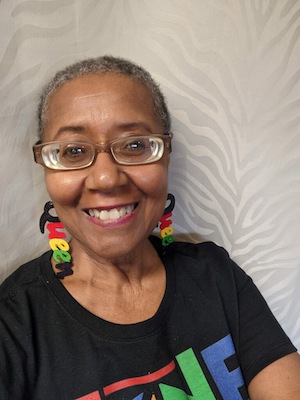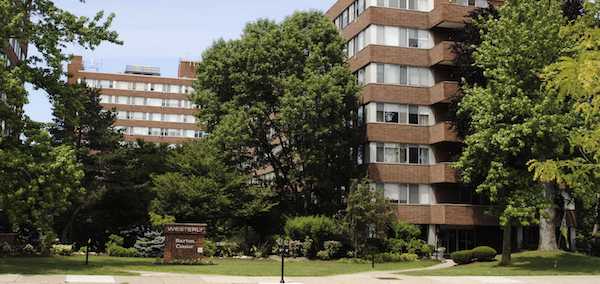Group aims to build community, balance "social power", and fill education gaps in African American history
Have you ever looked at the photos from the 1950s and ‘60s of teenagers virulently protesting the modest attempts of the Little Rock Nine or Autherine Lucy or countless others in the south or in Boston or Cleveland to enjoy the rights to an equal education?
Have you considered that those teenagers, or in some cases, their children, comprise a portion of today’s senior citizens, an active segment of today's voters today, and that some of them, consciously or otherwise, may retain old attitudes imbibed at the dinner tables, soda fountains, scout troops, and church parishes of those not altogether bygone days?
If so, then you may understand why a disparate group of black senior citizens are coalescing under the flag of the Lakewood Black Caucus. The group's very name is an oxymoron for Greater Clevelanders who came of age in the mid-twentieth century when Lakewood was one of the country’s biggest virtually all-white communities.

Patricia Wellborn
Patricia Wellborn moved into Lakewood’s Westerly Apartments five years ago. The Westerly is a complex comprising roughly 450 housing units considered “affordable senior housing”. At 71, the native Clevelander pounced on the chance to move in five years ago when her unit became available. She was living elsewhere in Lakewood at the time, and the desire that had returned her to Cleveland after 20 years in the arid spaces of New Mexico — family connections — made the first-ring west-side suburb a convenient place to call home.
Wellborn grew up in Cleveland’s Glenville neighborhood at a time when the social and economic differences between the two communities were galactic. But times have changed, and new generational leadership in the once lily-white Lakewood have made genuine efforts to become a more open, welcoming, and affirming city. Black enrollment at the city’s flagship St. Edward HS has long been an accepted thing, especially for students whose array of talents may include excellence in football, basketball, and wrestling.
Wellborn’s mother had guided her to attend St. Aloysius grade school and St. Peter HS as a youngster, and after receiving an associate degree from Tri-C, she had earned her undergraduate degree in communications from John Carroll University. A residence in Medina County at some point added to her store of life experiences.
But as time passed in the Westerly complex where she now lives, Wellborn began to observe that some of her fellow seniors didn’t seem to be buying into 21st century Lakewood. Wellborn, who describes herself as a metaphysician and a social justice activist, began to notice a phenomenon that concerned her. As long as black residents in her complex exhibited a certain diffidence or deferral to the norms that the largely white senior community appreciated, surface exchanges were pleasant. But whenever black residents expressed ideas incongruent with the comfort level of their white neighborhoods, Wellborn said she observed the operation of “social power” whereby the black residents were marginalized or isolated rather than engaged with.

The Westerly Apartments in Lakewood, Ohio
As a consequence, Wellborn led in the initiation of Lakewood Black Caucus, first as a way of creating a safe space for black residents of the Westerly Apartments. But the group’s goals have quickly expanded since its formation several months ago.
Next Tuesday, for example, the Caucus will host a community forum beginning at noon, where Wellborn talk about the Caucus, its beginnings, mission, and objectives. Questions will be welcome. She will also take questions and introduce LBC’s upcoming educational film series on racism in America.
Wellhorn says the group’s vision involves making it a resource to support a healthier community in all aspects. To that end, the nonprofit organization envisions developing a Freedom School for children to educate them on the history of African Americans that is typically omitted from public school curricula. She expects to see the children of Lakewood city leaders attend the school, evidence that they not only talk of inclusion and diversity but practice it.
Both next week’s meeting and the film screenings will be held in the Barton Senior Center’s Faulhaber Auditorium at the apartment complex, 14300 Detroit Ave [44107]. Admission and parking are free. Doors typically open for early arrivals about 30 minutes before programming begins. Entrance to the auditorium is at the rear of the Senior Center.
A schedule of LBC’s upcoming activities through November follows this article. For more information, contact This email address is being protected from spambots. You need JavaScript enabled to view it. or This email address is being protected from spambots. You need JavaScript enabled to view it..
• • •• • •
LBC Schedule through November 2021
Tues., Oct. 26, Noon
Forum: Patricia Wellborn talks about why the Caucus was formed and previews LBC’s film series.
Tues. Nov. 2, 12:30 - 2p
Film: Dr. Robin Di Angelo talks about her book, White Fragility, and answers the question, “why is it so hard to talk to white people about race?”
Thurs. Nov. 4, 12:30 - 2p
Film: Dr. Jaqueline Battalora is interviewed about the origin of her book, Birth of a White Nation. She sheds light on the colonial laws that set the foundation of America’s current caste system.
Fri., Nov. 5, 6-8p, 12:30 - 2p
Monthly meeting of the Caucus; doors open at 5:30p.
Tues. Nov. 9, 12:30 - 2p
Film: PBS Documentary, “Slavery by Another Name,” is an intense depiction of the brutal, inhumane system of chattel slavery.
Friday Nov. 12, 12:30 - 2p
Film: Dr. Joy DeGruy Leary explains in detail the devastating effects of chattel bondage on Black people—past and present-- during her lecture on “Post Traumatic Slave Syndrome.”
Tues. Nov. 16, 12:30 - 2p
Film: Dr. Tricia Rose gives a clear analysis of how the past and current legal systems of law intersect to advantage whites while disadvantaging Black people in her lecture “How Structural Racism Works.”
Thurs. Nov.18, 4 - 6p
Film: Di Angelo’s talk on White Fragility will be repeated so that participants can gauge their understanding of their conscious and unconscious bias.














